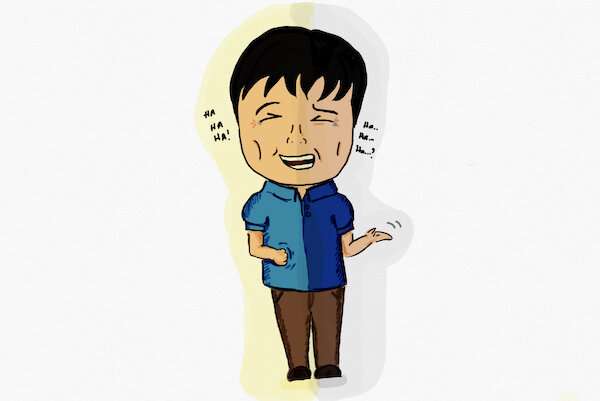Doctors find a cure for rare uncontrollable laughter condition

Laughter is the best medicine, except when it is actually the symptom of an illness. Medical residents at the University of Hawaiʻi (UH) helped to find relief for a man who suffered from nearly a lifelong affliction that caused him to laugh with no control over when or why he did.
"This was a very medically intriguing case. Prior to this case, I didn't know seizures could manifest in such a way as uncontrollable laughter," said Dr. Nina Leialoha Beckwith (JABSOM MD 2018), a Family Medicine Resident who worked on the case with fellow residents under the supervision of UH John A. Burns School of Medicine (JABSOM) clinical professor Kore Kai Liow, neurologist and Chief of Staff Elect at Adventist Health Castle.
The case was academically compelling but it also stirred great empathy in the physician trainees. The patient, 40 years old at the time, had suffered from the uncontrolled laughter since the age of eight.
"I can only imagine what it is like for this patient to suffer from these bizarre seizures for so many years," said Beckwith. "I'm grateful to have been a part of his care and I believe his story can help us as clinicians to identify and provide better care for patients suffering from similar conditions."
As the physicians reported in the Hawaiʻi Journal of Medicine and Social Welfare, the medical term for the condition was a gelastic seizure. They wrote, "Gelastic seizures (GS) are a rare form of epilepsy characterized by inappropriate, uncontrolled laughter. They are highly associated with abnormal cognitive development and behavioral problems in patients. Research has shown that GS can originate from hypothalamic hamartomas, non-neoplastic masses consisting of gray matter with large and small neurons interspersed with glial nuclei. GS have also been observed in patients with frontal and temporal lobe lesions."
The man had a history of both a brain tumor and of diabetes mellitus and schizophrenia, in addition to the laughter fits which struck two to three times a week. He had been considered by some to have longstanding behavioral issues. But –at least when it came to the uncontrolled laughter, there was indeed a physical cause, and when the hypothalamic hamartoma was detected and the patient treated with medicine, the laughter was brought under control, according to Dr. Liow.
The researchers concluded, "As demonstrated by this case report, in patients with behavioral issues, especially those with inappropriate uncontrolled laughter, gelastic seizures need to be included in the differential diagnosis. Thus, a thorough workup should include neuroimaging with attention to the suprasellar region and EEG. Accurate, early diagnosis and patient education are critical in avoiding excessive and unnecessary treatments. This condition may be pharmacoresistant and is often associated with progressive cognitive and behavioral issues. Studies have shown a surgical treatment approach may be effective."
More information: Inappropriate Laughter and Behaviors: How, What, and Why? Case of an Adult with Undiagnosed Gelastic Seizure with Hypothalamic Hamartoma. Hawaii J Med Public Health. www.ncbi.nlm.nih.gov/pubmed/30533284

















